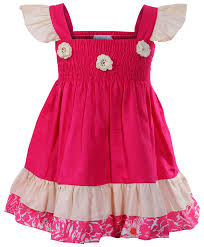记忆方法
将“frock”与“rock”结合起来记忆。想象某人穿着一袭长裙(frock),这裙子风格时尚,仿佛在舞台上摇滚(rock)表演。通过这样的联想,可以更快地记住“frock”这个单词的含义。
以上内容由AI生成, 仅供参考和借鉴
中文词源
frock 连衣裙,女装
来自古法语froc, 僧侣的道袍,衣服,裙摆,来自PIE*krek, 编织,词源同reel. 进一步来自PIE*sker, 弯,转,编织,词源同cradle, crown. 现主要用于指女装,连衣裙等。
英语词源
- frock
-
frock: [14] Frock is a Germanic word, although English acquired it via Old French froc. It originally meant ‘long coat or tunic’ – a sense reflected in the related Old High German hroc ‘mantle, coat’, and preserved in English frock coat and unfrock ‘dismiss from the office of clergyman’ (frock once having denoted a ‘priest’s cassock’, and hence symbolized the priestly office). Its application to a ‘woman’s dress’ dates from the 16th century.
- frock (n.)
- mid-14c., from Old French froc "a monk's habit; clothing, dress" (12c.), which is of unknown origin; perhaps from Frankish *hrok or some other Germanic source (compare Old High German hroc "mantle, coat;" Old Norse rokkr, Old English rocc, Old Frisian rokk, German Rock "a coat, over-garment"). Another theory traces it to an alteration of Medieval Latin floccus, from Latin floccus "flock of wool." Meaning "outer garment for women or children" is from 1530s. Frock-coat attested by 1819.
权威例句
- 1. Few Englishmen wear frock coats now. They went out years ago.
- 现在,英国人很少穿大礼服了, 大礼服在多年以前就不时兴了.
- 2. That frock shows your petticoat.
- 那件上衣太短,让你的衬裙露出来了.
- 3. The frock is now out of style.
- 这种女上衣已不时新了.
- 4. She stood up and smoothed down her frock.
- 她站起身,抹平了裙子。
- 5. I do hope you have some other frock besides that one.
- 我真希望你除了这身穿着还另外有件衣服.
